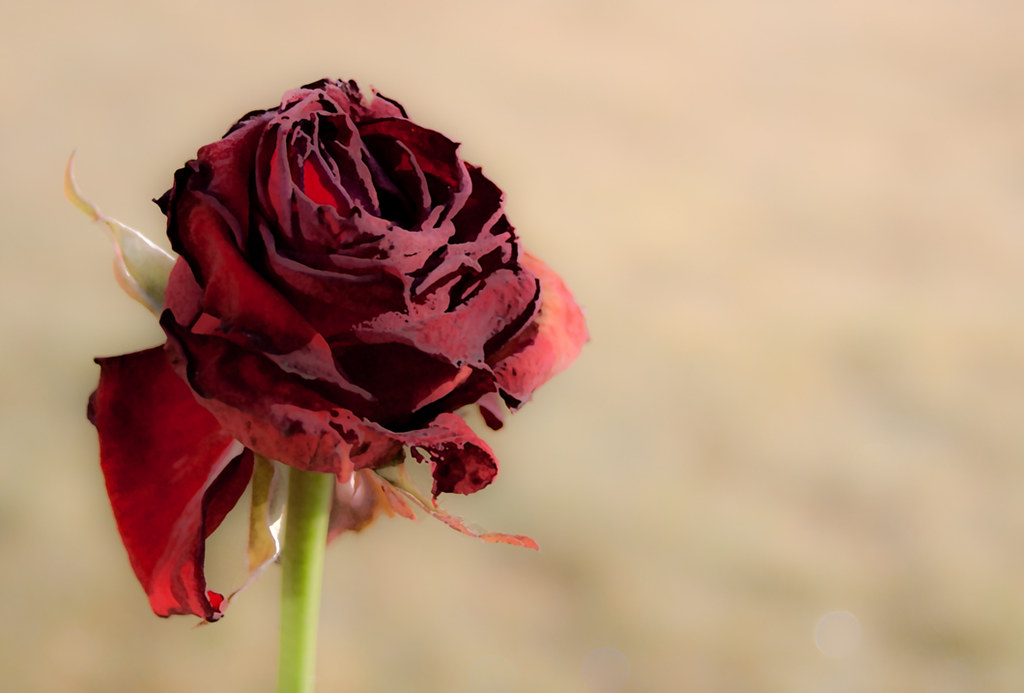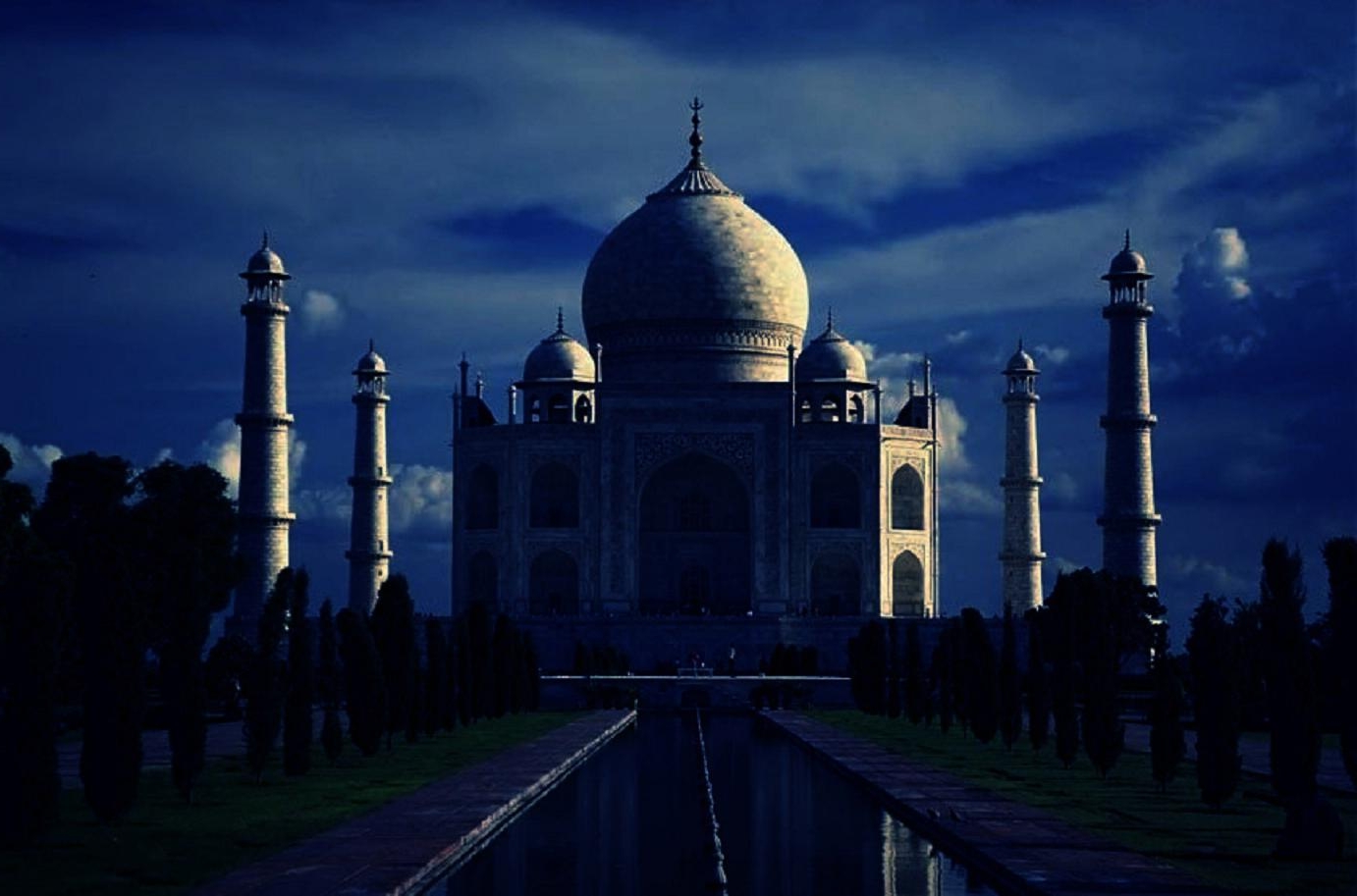

‘You’ve all my mother’s trust.’
I heard the words come off her mouth, as easily and instinctively, as pleasantries exchanged in a greeting: without any reflection or consideration, unrehearsed and spoken raw, the way it first originated in her mind. The way truth is spoken perhaps, as I believed – on the face and without a flinch.
We were seated at the promenade of a buzzing Calcutta theatre. The evening show had just ended and people boisterously poured out of the gates like jets of water shooting from the broken edge of gushing water pipe: chattering and hooting on top of their voices; their faces ecstatic. Children, quick to adapt the antics of the protagonist, had their flimsy glasses tucked to the back of their necks; women shied under their coquettish smile imagining the bare-chested, beefy, ageing hero setting the world alright on screen; while men, as they seemed with their lurid faces, discussed the heroine in explicit details.
For the initial few minutes as the mob ran amok within the premises, we stalled our conversation and sat with our gazes affixed on an abandoned fountain pool where our shadows brushed at the temples. I leaned slightly to my left to check if the shadows belied, and felt her hair brush my cheek. She withdrew, smiling; and I watched the shadows part on the dusty tiled bed. A colony of creepers unrestrained, thrived in the crevasses.
‘She was asking so many questions. Gawd!’ she declared, animatedly holding her head. ‘Where are you? When’ll you be home? It’s getting late. Blah Blah!’
She had just ended the call with her anxious mother, that a solemn smile, like a ripple growing on a lake as the stone of concern slowly sank, I watched, quickly conquer her face.
She had just ended the call with her anxious mother, that a solemn smile, like a ripple growing on a lake as the stone of concern slowly sank, I watched, quickly conquer her face.
‘I just told her I was with you.’
Until then we had no formal acquaintances of what could suffice for the necessary bit of information required to placate her worries concerning her daughter’s convenience on a day out with a boy she had known only as far as her eyes could make out from the second-floor balcony of their house: leaned over the sidewall with her eyes spread out in wait on the dim alley sweeping up to the entrance, as I walked her home a couple of times from our evening classes; or rode up early morning on my bicycle with a roll of notes from classes she missed (damn the migraine) and waited outside the porch, until she emerged through the door with sleep imbued eyes, and unkempt hair to collect them from me under her mother’s gaze, affixed on us from the balcony, spreading wet clothes on taut nylon ropes. To let her worries, rest with just one statement, that she was with me, and contently ending the call, given our limited exposure to each other’s lives was a little too much to believe, even while the idea of my love making inroads with her had my heart bursting into confetti. Or, had she picked the changed air of my body language, of me missing steps and fumbling with words while I was with her? Was the auburn glee in my eyes, as I waited at the porch with my head turned to the door, desperate to behold her daughter once in the garb of lending study notes, busted by a mother’s unfailing instincts? Was there finally someone in this world, except my own smitten heart, who knew how my bones became water and my head a raging sandstorm, abandoned of consciousness and thoughts trailing skyward, every time she lifted her smiling eyes to me?
We had bunked our classes to watch a Nolan rendition at Matrix, Calcutta, and it wasn’t until I arrived at the theatre teeming with cine-goers under its low domed roof, and the air abuzz with chants of ‘bhai’, with jostling bodies in long winding queues braving the humidity before dust-laden, gigantic pedestal fans as they made way to a shabby ticket counter, did I realize that we were at the wrong place, expecting a movie as foreign and distant to their knowledge as sense and artistic credibility to the movie being screened.
We had bunked our classes to watch a Nolan rendition at Matrix, Calcutta, and it wasn’t until I arrived at the theatre teeming with cine-goers under its low domed roof, and the air abuzz with chants of ‘bhai’, with jostling bodies in long winding queues braving the humidity before dust-laden, gigantic pedestal fans as they made way to a shabby ticket counter, did I realize that we were at the wrong place, expecting a movie as foreign and distant to their knowledge as sense and artistic credibility to the movie being screened.
‘How could you even imagine they playing a sci-fi here?’ she confronted me at the desolate kerb of the cinema, where, disappointed, we were sitting down to while away the evening.
‘Sometimes they do.’ I shrugged. ‘Hindi dubs.’
‘You came in for Hindi dub?’ she asked with stretched eyes.
‘Nothing like DiCaprio mouthing Hindi lines in American accent.’
She plunged her elbow to the side of my stomach in response to my mirthless retaliation, as we sat down on concrete steps flanking an ornamental fountain that had long lost its use. A mesh of rusted water pipes ran around a tubular sprinkler with a dead motor at its centre. In its nooks were nests of stray birds with reeds of fodder jutting out of the weave and unguarded eggs clustered in the hollow. Its dusty blue floor of broken tiles was carpeted with decaying sheets of leaves that ruffled and sung with the afternoon breeze. With the city at work on a weekday, the road outside was relatively empty as the market strip idled and napped under the mild August sun. The distant rumble of tram carriages occasionally floated in, and vanished before it grew in prominence. A groaning ambassador flew past the gates tilting the balance of quiet, that she pulled me by the shoulder and planted her lips on mine. There on the steps of a scraped fountain, and in broad daylight, with a room full of people at our back in their matinee, we led ourselves across boundaries our minds built and bodies broke. Till she pulled me by my shoulder, till I saw her luscious mouth close over mine, till my arms very reluctantly crossed on her back and our breaths mated; we were only friends. A friend who could seize my senses with a look, whose mother trusted her safety with me, and whom whenever I looked at, even thought of, regardless of the circumstances, life felt like a delightful, more purposeful voyage. We must have sat there long, and not until did we hear the scurry of footsteps land back on the kerb, and the clouds darkened between astride electric wires running high on the poles, did we care to sit apart. She checked her phone and it revealed a dozen missed calls from her mother. She called back and was subjected to a flurry of questions. That was when she said she was with me and startlingly, no other question followed. She slid the phone back into her sling and smiling, stood up to dust the back of her denim. I followed her down the steps, wading through littered butts of tickets towards the exit.
‘Nothing like DiCaprio mouthing Hindi lines in American accent.’
She plunged her elbow to the side of my stomach in response to my mirthless retaliation, as we sat down on concrete steps flanking an ornamental fountain that had long lost its use. A mesh of rusted water pipes ran around a tubular sprinkler with a dead motor at its centre. In its nooks were nests of stray birds with reeds of fodder jutting out of the weave and unguarded eggs clustered in the hollow. Its dusty blue floor of broken tiles was carpeted with decaying sheets of leaves that ruffled and sung with the afternoon breeze. With the city at work on a weekday, the road outside was relatively empty as the market strip idled and napped under the mild August sun. The distant rumble of tram carriages occasionally floated in, and vanished before it grew in prominence. A groaning ambassador flew past the gates tilting the balance of quiet, that she pulled me by the shoulder and planted her lips on mine. There on the steps of a scraped fountain, and in broad daylight, with a room full of people at our back in their matinee, we led ourselves across boundaries our minds built and bodies broke. Till she pulled me by my shoulder, till I saw her luscious mouth close over mine, till my arms very reluctantly crossed on her back and our breaths mated; we were only friends. A friend who could seize my senses with a look, whose mother trusted her safety with me, and whom whenever I looked at, even thought of, regardless of the circumstances, life felt like a delightful, more purposeful voyage. We must have sat there long, and not until did we hear the scurry of footsteps land back on the kerb, and the clouds darkened between astride electric wires running high on the poles, did we care to sit apart. She checked her phone and it revealed a dozen missed calls from her mother. She called back and was subjected to a flurry of questions. That was when she said she was with me and startlingly, no other question followed. She slid the phone back into her sling and smiling, stood up to dust the back of her denim. I followed her down the steps, wading through littered butts of tickets towards the exit.
We took a bus home standing by the barred window beside her, our hands inches apart on the same iron grille, as evening flashed past us outside in frames of dust and smoke. I watched her in silence: breathing sedately down her chin, locks of her hair rippling in the wind by her face, and her eyes averted from mine, rested lonely on the smoggy horizon. I wanted to talk about it: put out my feelings dressed in choicest of words, talk about how I lose my step and fail my words every time she looks at me; how all this had been raging inside me but could never muster enough audacity to pursue them; how she was everything that looked and felt like love in the dreams I had so far been weaving in her longing. But nothing came out. Just a smile that tasted like her breath, as the bus lurched to a halt at our destination.
It was close to 9 in the evening when we got off and was walking her down the familiar lanes towards her house. She was instructed to be home by 7, no matter what, but we had flouted that ultimatum by a good two hours. I expected her to be animated, panic, be afraid for what would be awaiting back home, absolutely anything to break the silence that hung on us throng the entire course of our journey. But there was nothing, and that in turn cemented my faith about her parents being okay about her being out with me, about us, about my love that I was certain she would confess any moment soon.
She walked a few paces ahead of me: through shadows of buildings leaning into each other, crossing arcs of saffron light from street lamps that lay washed in mud suggesting a passed spell of rain, past the municipal trucks parked to the side and taking right from a square past a pack of stray dogs maddened and howling, gnawing at the litters, headed straight to her house. I lifted my eyes from her back to the second-floor balcony where her mother stood: bent over the balustrade under a diminutive lamp, chin in her palm and waiting for her daughter to be home. I waited as she ambled up the stairs, and looked up to her mother. She returned me my prized smile of acknowledgement, and at that moment, it sufficed for every word of love and promise I couldn’t say or hear from her daughter. A heart won with trust, I believed, was a big achievement to start with, as I walked home with ambrosial dreams of an accomplished love.
It’d been six years since that day of walking her home late in the night, that I caught sight of her at a grand Durga Puja pandal in central Calcutta this year. Resplendent in a crimson saree with her undulating curls left open on the back and doubling over in an impressive laughter. I glanced at my watch; it was well past 2. She should have been home by 7, I told myself, and almost impulsively started striding towards her. Until soon I watched a man step in from the dark and hold her by the waist, joining in her laughter. She then flipped out her phone and cheerfully, started talking. I watched her lips move in a familiar murmur. I remembered her words, ‘You’ve all my mother’s trust.’
From a distance, I watched them walk away, with old trust retiring to bed in new hearts.
Author: Sobhan Pramanik










